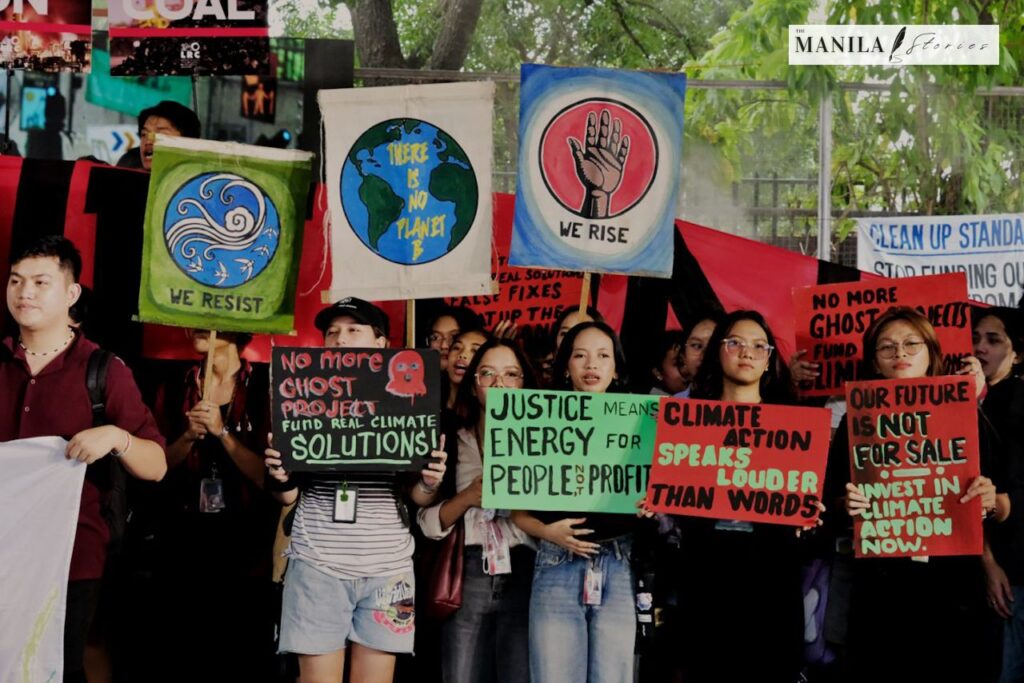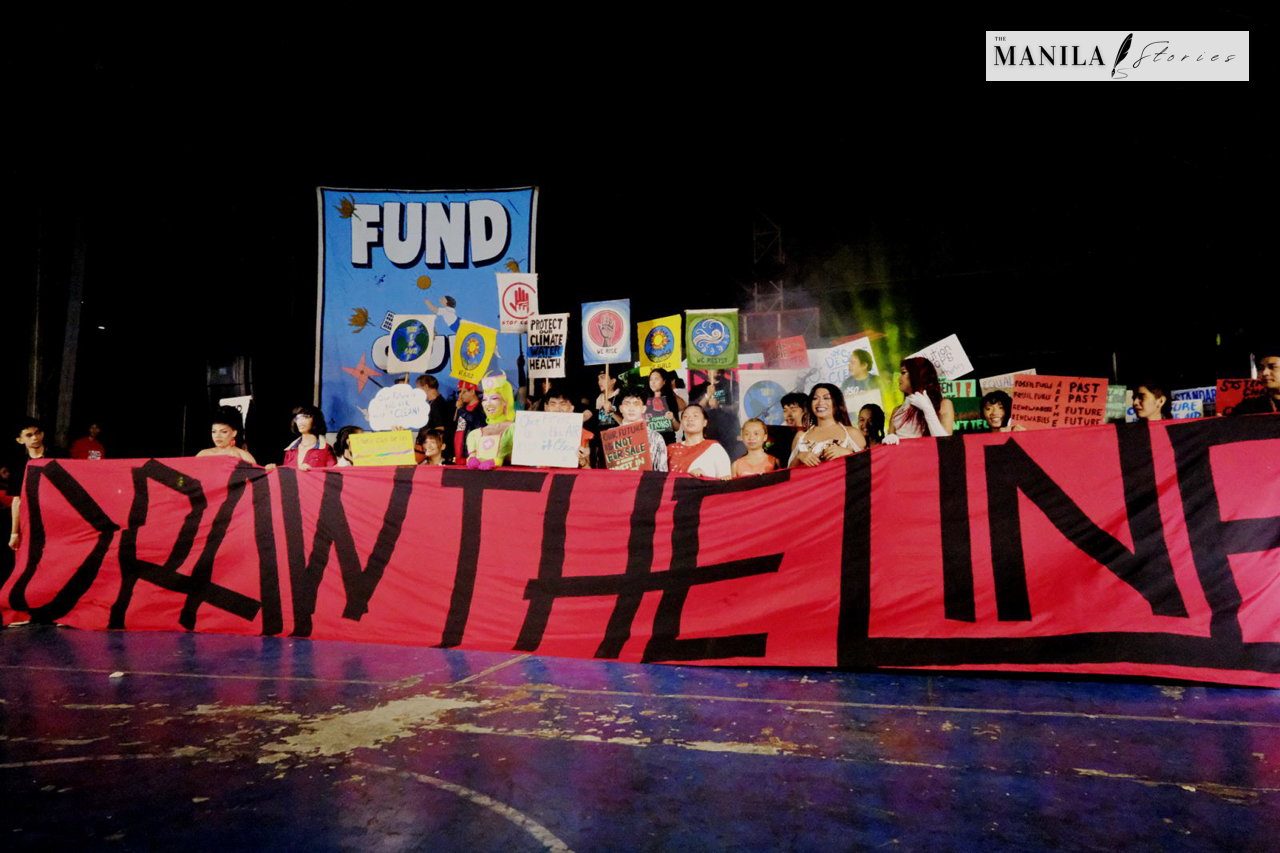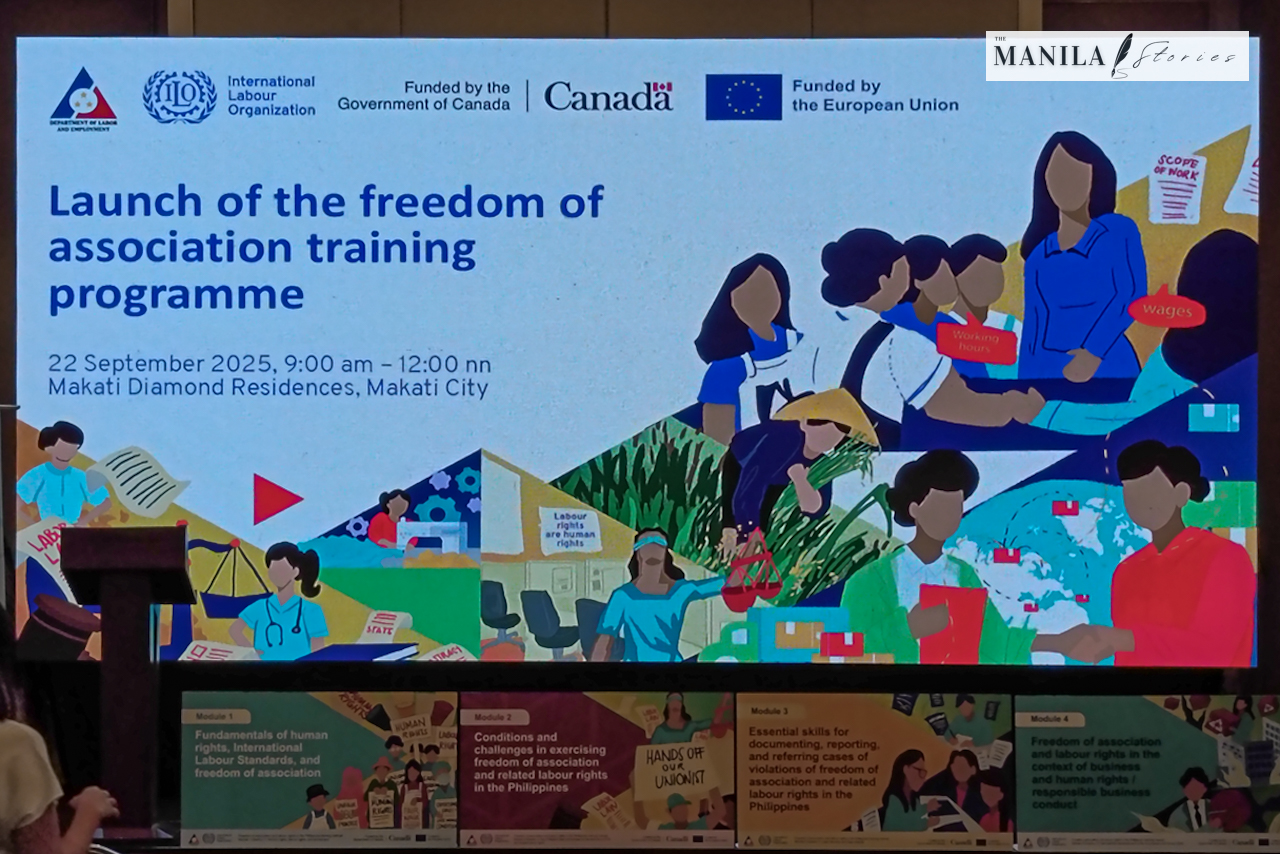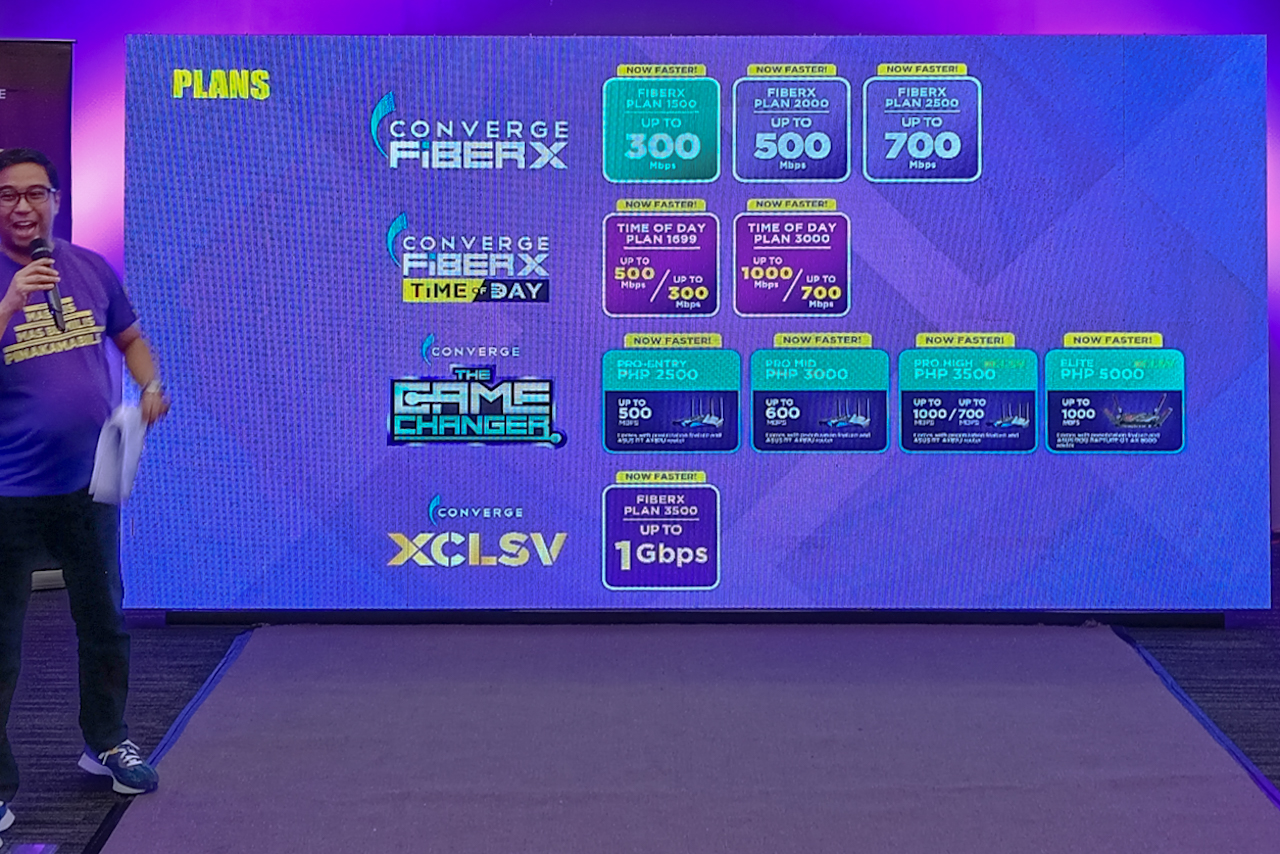Communities, youth, and civil society organizations gathered at the Polytechnic University of the Philippines (PUP). They called for people-centered climate solutions. They did this through the global campaign Draw the Line, ahead of the Global Day of Action for Climate Justice.
The three-part activity included a snake rally and the unfurling of a giant banner in front of the university. It also featured exhibits showcasing community-led climate initiatives in rural and Indigenous Peoples (IP) communities. Additionally, there was a student-led mobile charging project powered by photovoltaic technology. Draw the Line concluded with a music festival featuring artists and cultural groups.
The Philippines is caught in the crossfire of two crises: the climate emergency and systemic corruption. Recent scandals have exposed ghost projects, anomalous contracts, and substandard infrastructure. These issues have not only drained public coffers. They have also deepened the impacts of flooding and disasters. This corruption constitutes climate injustice—diverting resources away from the people who need them most and locking communities into vulnerability.

From September 19–21, simultaneous actions are taking place across the Philippines. These actions aim to build momentum toward COP30 in Brazil. They urge national leaders to redirect public financing to communities. Leaders should divest from fossil fuels and invest in renewable energy and sustainable systems.
“Advocating genuine climate solutions is both an act of defiance against extractive industries and a celebration of community power. Across the Philippines, communities are leading the way toward community-owned renewable energy. They are rising, mobilizing, and demanding accountability,” says Jawo Jayme, Lead Coordinator for Draw the Line Philippines.
Draw the Line is led by 350 Pilipinas, along with its partner organizations and institutions, including the Polytechnic University of the Philippines and 350.org. It also includes 350.org Asia, Amnesty International, Asian Peoples’ Movement on Debt and Development, and the Consortium of Office Management and Information Technologists. Other partners include the Global Alliance for Incinerator Alternatives (GAIA) – Asia Pacific. Greenpeace Philippines is also a partner. Health Care Without Harm – Southeast Asia is part of the group too. The partnership extends to the Human Rights and People Empowerment Center. It also includes the Institute for Climate and Sustainable Cities, and Kalayaan National High School. Furthermore, the Lasallian Institute for the Environment, the Legal Rights and Natural Resources Center, and the Lilok Foundation are involved. LILAK is part of it too. It includes Purple Action for Indigenous Women’s Rights, Mobility Awards, NGO Forum on ADB, and Oxfam Pilipinas. Other participants include Panatang Luntian, Penuel School of Theology, Philippine Movement for Climate Justice, and Popcycle. PUP Institute of Technology Student Council, PUP-SETS, and Reboot Philippines Renewable Energy Transition Institute are participants. Lastly, 350 Pilipinas Bike Squad and Sanlakas are also involved.




